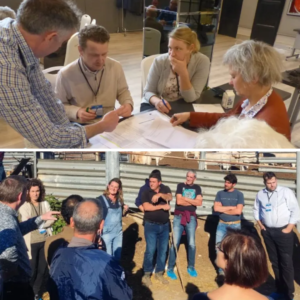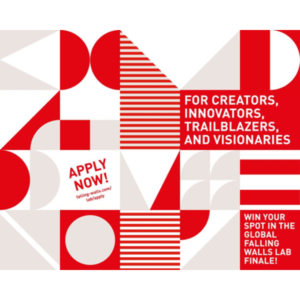Christmas – culturally diverse and sustainable celebrations Szilvia Newell, Office...
Read More
Minerva Runs Series of UK Workshops to Discuss Current Barriers & Opportunities Facing Production & Market for Bio-Based Products
By Mimi Saville
24th March 2019
On the 19th March 2019, Minerva, the UK partner in the BIOVOICES project, organised the first UK regional MML workshop at Farm491, Royal Agricultural University, Cirencester UK. The focus of the workshop was the Agritech sector and the challenges these businesses face relating to the three phases of development: Business Case Development; Go-To-Market; & Market Acceleration.
The EU H2020-funded BIOVOICES project is running a series of Mobilisation and Mutual Learning activities (MMLs) across Europe, engaging the stakeholders of the Quadruple Helix (government/policy, business, research and civil society), to address the most relevant challenges to boost the Bioeconomy and the uptake and development of bio-based market uptake.
“Sharing of knowledge [at the Farm 491 MML] was good as people from different backgrounds were brought together to share their different viewpoints.” – Entrepreneur/Researcher
BIOVOICES is committed to ensuring all voices concerned with the switch to biobased resources are heard.

at the Farm491 MML Workshop – 19th March 2019
The key issues emerging from the workshop were:
- With all the uncertainty surrounding Brexit, the UK is in a difficult position. Many policy areas, including the UK Bioeconomy Strategy, are currently being overlooked/overshadowed while Brexit negotiations are taking place. While there is no clear plan for the UK’s exit from the EU, the UK is in a holding position regarding the promotion of the UK Bioeconomy Strategy and the market development and uptake of BBPs.
- Due to the lack of high level TRL Bio-Based Products (BBPs) in the UK, the challenges facing the uptake of BBPs start to arise before the Business Case development phase. In order to address these initial hurdles unique to the UK market, there is a need to look at the Ideas/Start-up development phase prior to Business Case development.
- Is the challenge feasibility rather than funding? – there is too much focus on the need for funding and because of this the feasibility and market for the innovation/product is being overlooked.
- UK is very good at supporting front-end innovation and research (world leader in many areas of research) but does not provide the support needed for market development and acceleration meaning innovative business ideas/products are non-starters or are taken to market in other countries where this support is provided (USA).
- UK perspectives on entrepreneurship and innovation are short term – investors want to make their money back within a short time frame and a high percentage of innovators/Start-ups want to grow a business to sell within a 5-year period.
- There is a gap in awareness and understanding with both the public and business sectors – confusion arises over what bioeconomy, bio-based, bio-plastic, bio-degradable, recyclable mean. Until consumers – and gatekeeper such as business leaders and investors – have a clearer framework identifying the different ‘labels’ used in relation to bio-based sectors barriers to market uptake in the UK will remain.

Academia, Policy and Civil Society – 19th March 2019
Which are the actionable points arising from the workshop?
- Focus on the challenge of feasibility rather than funding to move sector forward
- Raise awareness about the bioeconomy and bio-based products in UK
- Work to transform regulatory framework and policy in UK
- Standards essential to build market/consumer trust
- Allign funding needs with the broader picture
- Ensure stability and consistency of feedstock and supplies
___________________________________________________________________________
Do you want to receive more information about BIOVOICES and its activities? Subscribe to the newsletter and join the Platform!
___________________________________________________________________________
The Venue – Farm 491, Royal Agricultural University – Cirencester UK
Agritech is the use of technology in all growing environment to assist in feeding the projected 10 billion population by 2050 whilst maintaining a healthy planet.
Farm491 provides specialist support to companies with an agritech business concept that supports the growing environment via technology. Technology is the application of scientific knowledge for practical purposes and could benefit sectors such as agriculture (including insect farming), horticulture, forestry, fruit, viticulture, and aquaculture.
Other industries may realise that the benefits of their product/concept can be applied to farming. Farm491 can help established businesses investigate and migrate into this new field.
Agritech provides solutions to the increasing population and growing environmental concerns such as food security, managing resources effectively and reducing pollution. Cutting edge agritech businesses may not only be about finding their marketplace but also discover their call to action in making our planet more sustainable.
___________________________________________________________________________
More News
Minerva drives success of European Beef Farming Network Project
Minerva drives success of European Beef Farming Network Project By...
Read MoreZero waste week
Minerva News: Embrace Zero Waste Week with Minerva Communications! By...
Read MoreMinerva’s Mentoring Successes
Minerva has been commissioned for a third consecutive year to...
Read More


